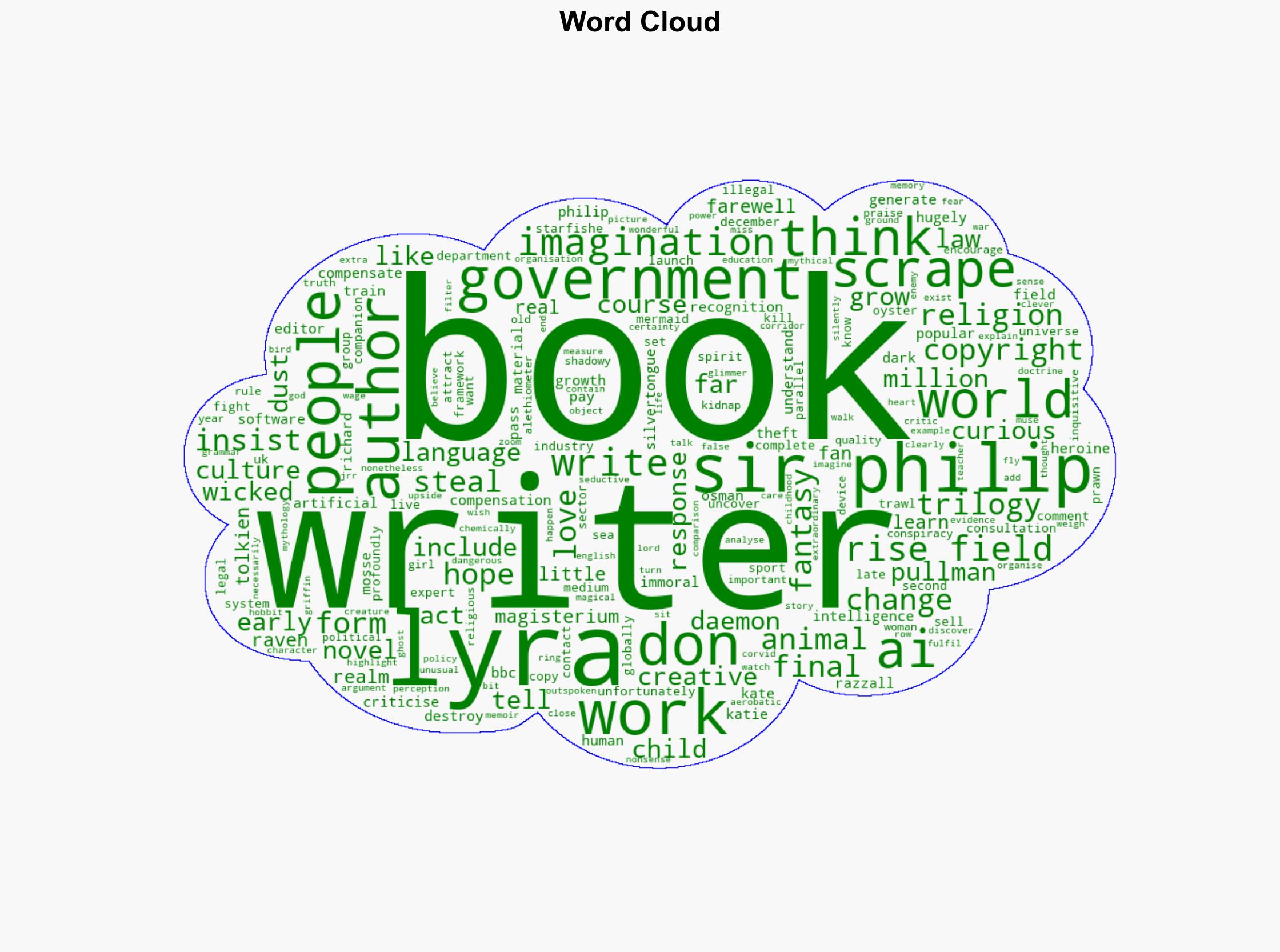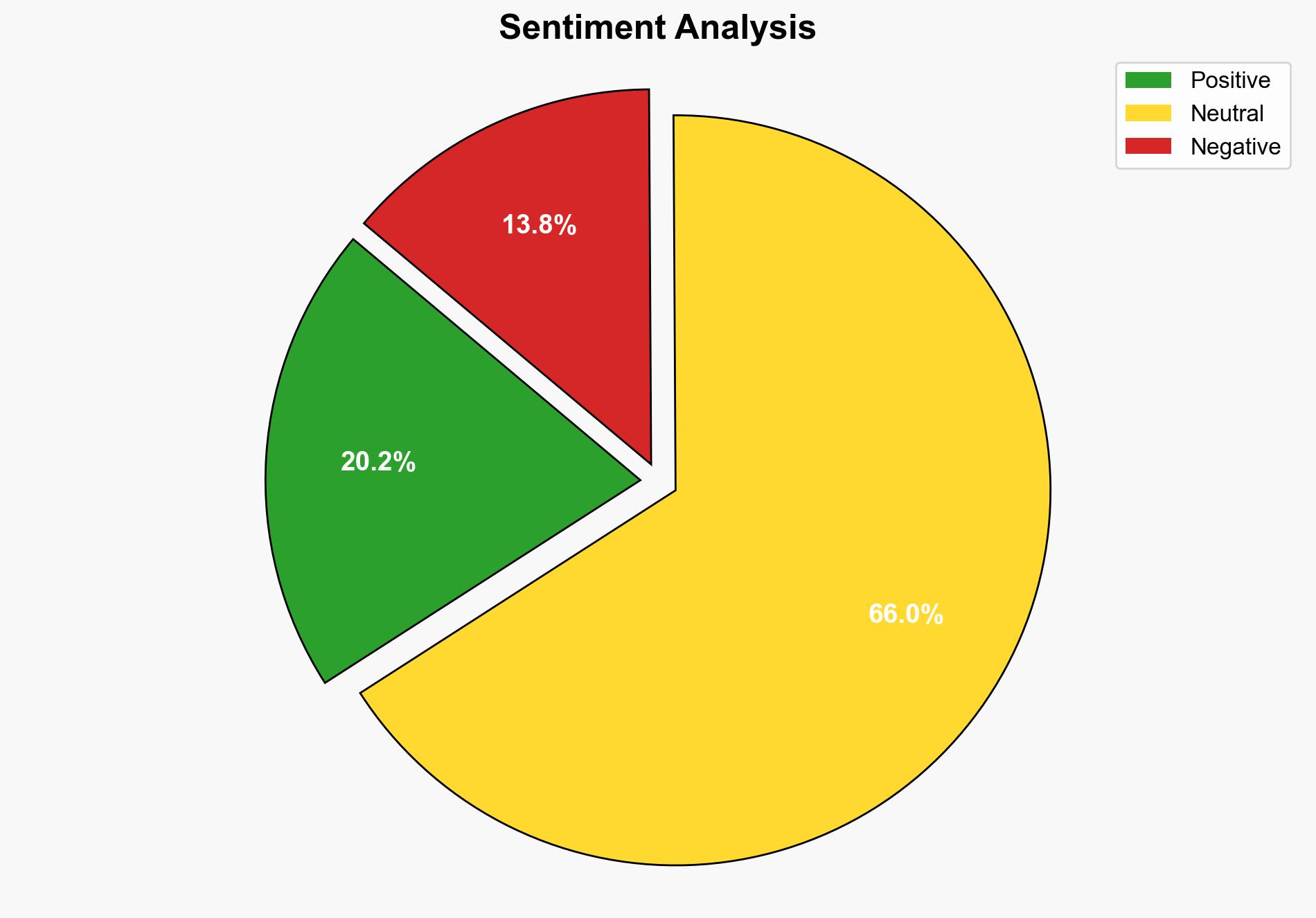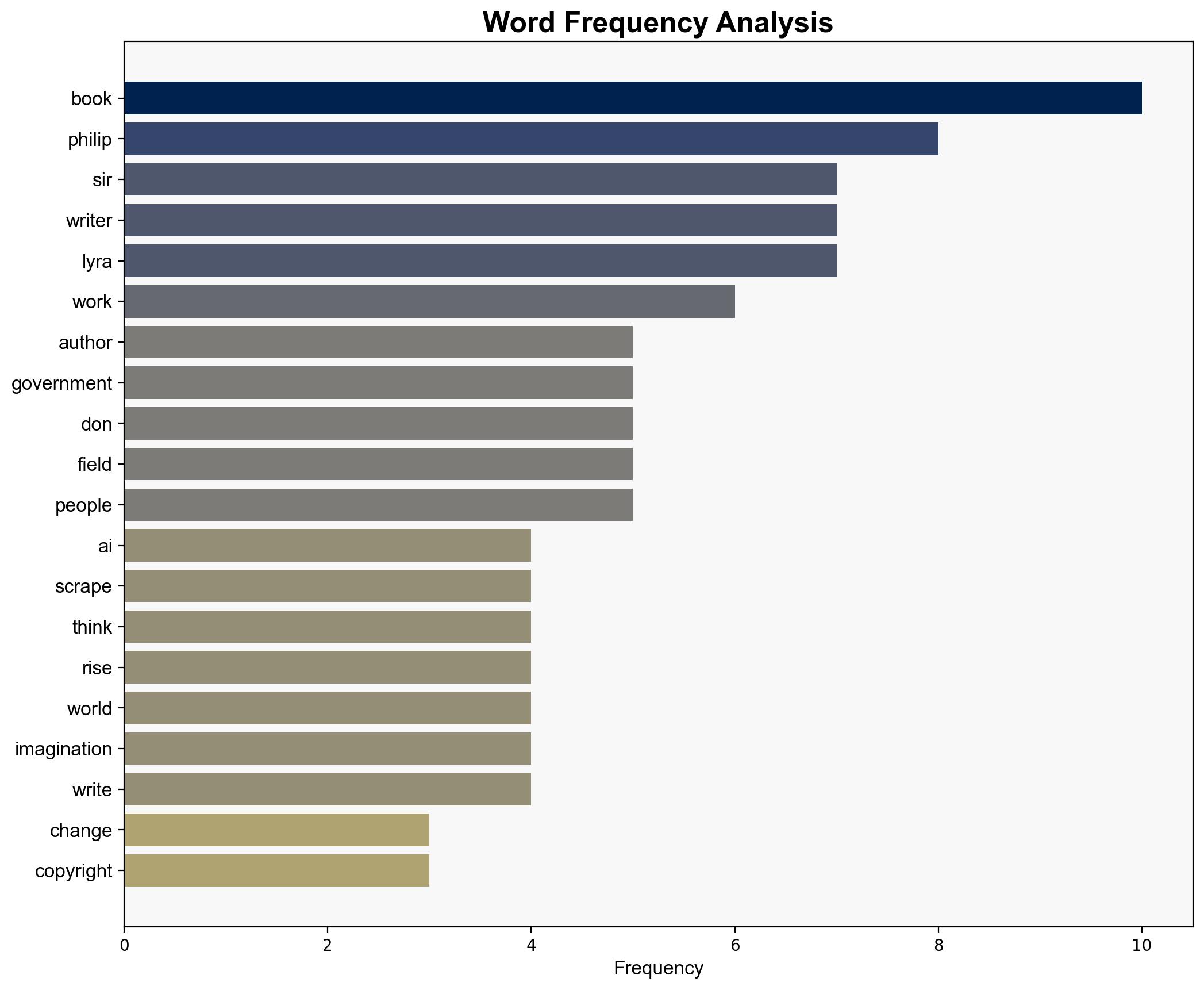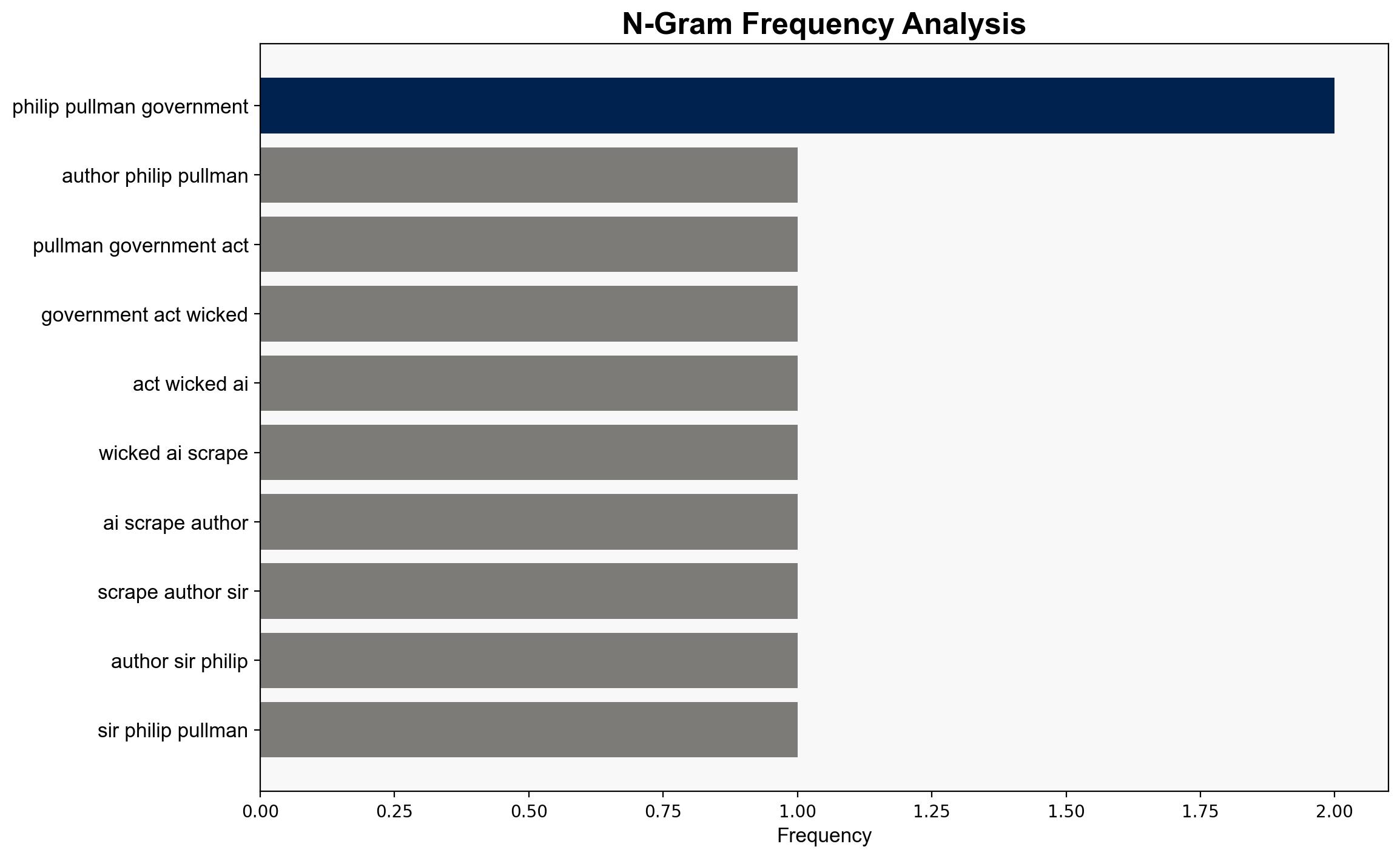Author Philip Pullman calls on government to act on AI using books for training – BBC News
Published on: 2025-10-22
Intelligence Report: Author Philip Pullman calls on government to act on AI using books for training – BBC News
1. BLUF (Bottom Line Up Front)
The strategic judgment indicates a moderate confidence level that the primary concern is the need for updated copyright laws to address AI’s use of literary works for training purposes. The most supported hypothesis suggests that without legislative action, the creative industry may face significant economic and cultural impacts. Recommended action includes initiating a comprehensive review of copyright laws to ensure fair compensation and recognition for authors.
2. Competing Hypotheses
Hypothesis 1: The primary issue is the lack of adequate copyright laws, which allows AI technologies to exploit literary works without proper compensation, threatening the economic viability of the creative industry.
Hypothesis 2: The concerns raised are exaggerated, and the current legal framework is sufficient to address the challenges posed by AI, with the issue being more about public perception and resistance to technological change.
3. Key Assumptions and Red Flags
Assumptions: Hypothesis 1 assumes that AI scraping of literary works is widespread and significantly impacts authors’ incomes. Hypothesis 2 assumes that existing laws can adapt to technological advancements without major overhauls.
Red Flags: Lack of specific data on the extent of AI scraping and its direct impact on authors’ earnings. Potential cognitive bias includes resistance to technological change and nostalgia for traditional publishing models.
4. Implications and Strategic Risks
If Hypothesis 1 is correct, failure to act could lead to a decline in creative output, economic losses in the publishing sector, and cultural impoverishment. Conversely, if Hypothesis 2 holds, over-regulation could stifle innovation and technological progress. Geopolitically, differing international copyright standards could lead to competitive disadvantages.
5. Recommendations and Outlook
- Conduct a detailed impact assessment of AI on the creative industry to inform policy decisions.
- Engage with stakeholders, including authors and AI developers, to draft balanced copyright reforms.
- Scenario Projections:
- Best Case: Updated laws foster innovation while protecting authors’ rights, leading to a thriving creative economy.
- Worst Case: Inaction results in significant economic and cultural losses, with authors abandoning traditional publishing.
- Most Likely: Incremental legal adjustments provide temporary relief, necessitating ongoing dialogue and adaptation.
6. Key Individuals and Entities
Philip Pullman, Kate Mosse, Richard Osman
7. Thematic Tags
intellectual property rights, AI ethics, cultural preservation, legislative reform




